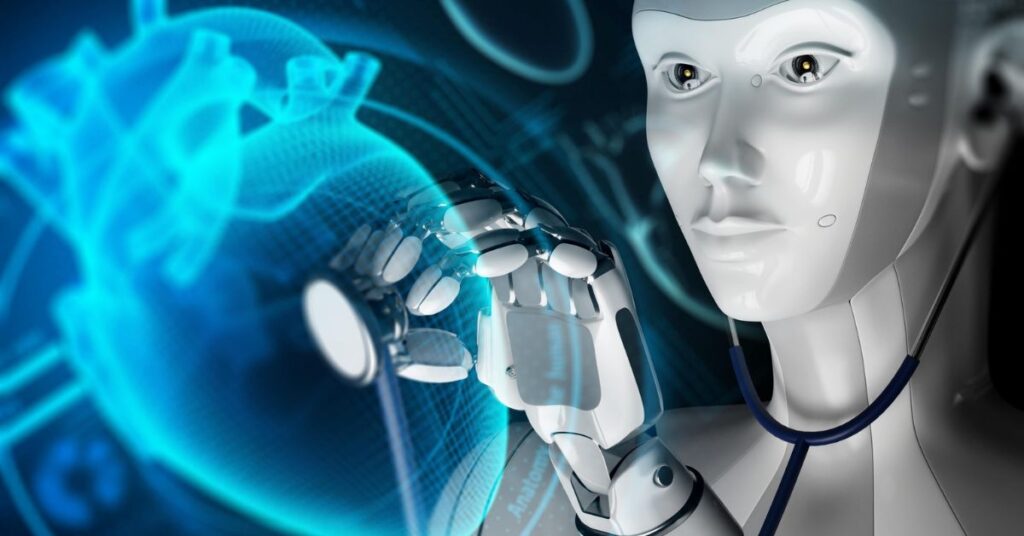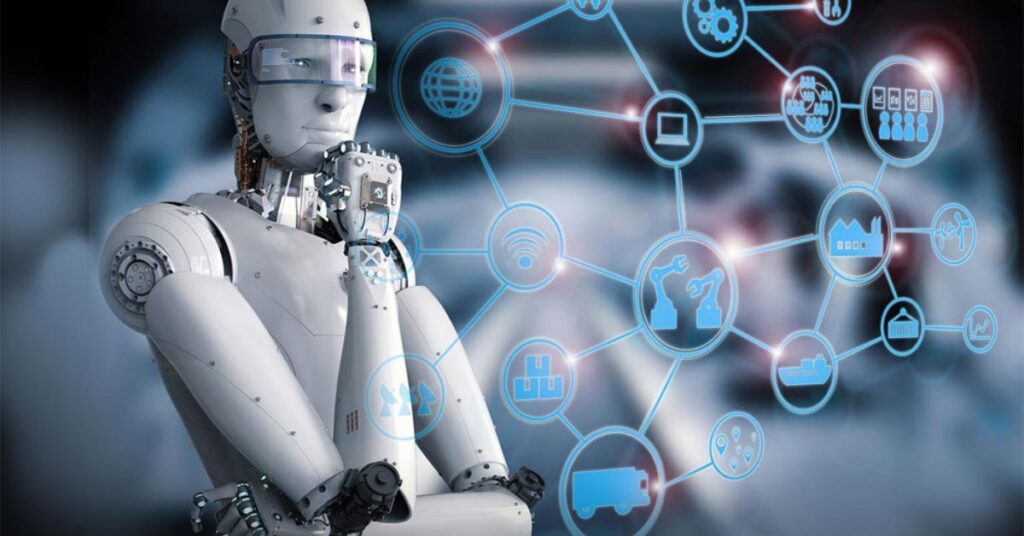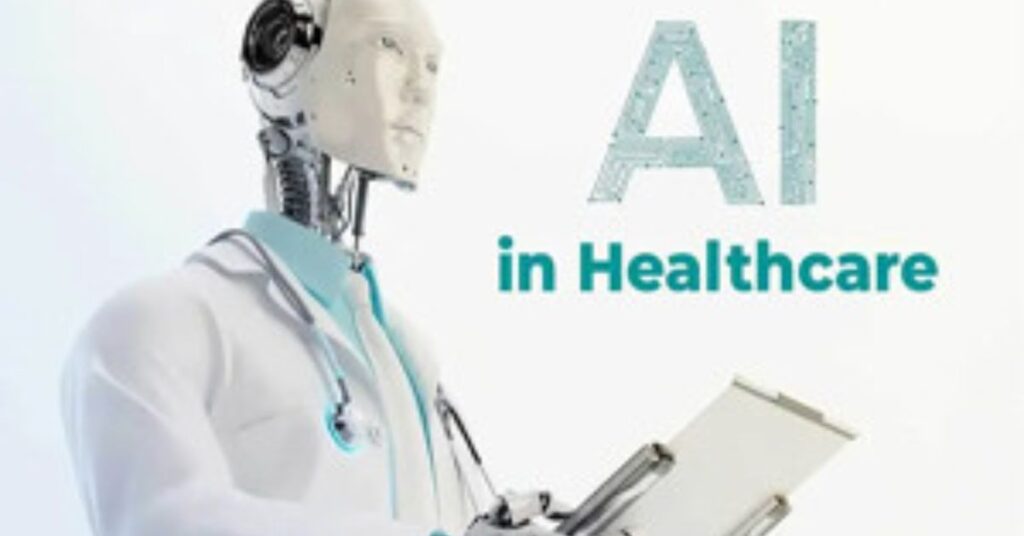Artificial intelligence (AI) is rapidly transforming the healthcare industry, bringing new tools and solutions to both doctors and patients. Machine learning in healthcare is playing a significant role in improving disease diagnosis and treatment, offering faster and more accurate results.
From early disease detection to personalized treatment plans, AI is revolutionizing healthcare outcomes. This article dives into how AI-driven diagnostics and personalized healthcare solutions are shaping the future of medical care, making it more efficient and tailored to individual needs.
How AI is Revolutionizing Disease Diagnosis in Healthcare
AI in healthcare refers to the use of artificial intelligence technologies to improve medical services, including diagnosing diseases and providing treatments. By analyzing data and identifying patterns, AI helps healthcare professionals make more accurate and faster decisions. It is revolutionizing the way doctors and patients approach health and treatment.
Imagine a world where doctors have AI tools that can detect diseases earlier and recommend personalized treatments. This is no longer science fiction—it’s happening now. AI is paving the way for smarter, more efficient healthcare, bringing exciting possibilities to save lives and improve patient outcomes.
AI is transforming healthcare by enabling quicker, more accurate diagnoses and offering tailored treatment plans. Machine learning algorithms can analyze medical data, predict patient outcomes, and even suggest treatments that might have been overlooked. This technology is not only enhancing the quality of care but also making healthcare more accessible to people around the globe.
The Role of AI in Personalized Treatment Plans

One of the most exciting advancements in healthcare is personalized healthcare solutions. These solutions use AI to tailor treatments based on each patient’s unique needs. AI takes into account factors like genetic data, medical history, lifestyle, and current health conditions to recommend the most effective treatments. This level of personalization leads to better treatment recommendations via AI, helping patients receive care that is specifically suited to their condition.
AI is also transforming AI-assisted treatment planning. In the past, treatments were often based on general guidelines. But with AI, doctors can create personalized plans for each patient, which improves treatment effectiveness. For example, AI can predict how a patient will respond to a specific treatment, allowing doctors to adjust plans accordingly. This AI-powered healthcare system is changing how healthcare providers deliver care, making it more focused on individual needs rather than a one-size-fits-all approach.
You May Also read this Blog: Unveiling the Top Google Search Trends of 2024: What the World is Curious About
AI and Big Data: Transforming Healthcare Decision-Making
Big data is playing a huge role in improving healthcare decision-making, and AI is helping to make sense of all this data. Healthcare technology innovations, like smart healthcare systems, rely on AI to sift through large datasets and extract valuable insights. Data-driven decision-making is now more accurate than ever, thanks to AI’s ability to analyze patterns in medical data that would be impossible for humans to detect.
AI is also improving predictive analytics in healthcare, which helps healthcare providers forecast patient outcomes. For example, AI tools can predict which patients are at risk of developing certain conditions or which treatments will be most effective. This allows healthcare professionals to make more informed decisions and provide timely interventions. As AI continues to evolve, it will enhance healthcare automation, making healthcare systems smarter and more efficient.
Enhancing Patient Care with AI-Powered Diagnostic Tools

AI-powered tools are changing how healthcare providers deliver care. AI-driven diagnostics are helping doctors make faster, more accurate decisions, especially when it comes to medical imaging. For instance, AI tools can analyze X-rays, MRIs, and CT scans to detect early signs of diseases like cancer, allowing doctors to begin treatment sooner. These tools not only improve diagnostic accuracy but also reduce the time it takes for doctors to make important decisions.
In addition to improving diagnostic accuracy, AI also supports healthcare AI advancements by enhancing patient care. AI can help with tasks such as automated diagnostics, scheduling, and patient monitoring. This allows healthcare professionals to focus more on providing direct care. AI-powered digital health tools can monitor patients in real time, alerting doctors to any changes in a patient’s condition. These innovations are improving access to care and ensuring that patients receive timely and accurate treatment.
The Future of Healthcare: AI’s Impact on Medical Research and Treatment

AI is set to change the future of medical research and treatment. In drug discovery, AI is already helping scientists find new treatments faster and more efficiently. AI medical research uses predictive models to analyze vast amounts of data, identifying potential drug candidates that might have been missed using traditional methods. AI can also predict how patients will respond to new treatments, improving the chances of successful outcomes.
AI’s impact on precision medicine is also significant. This field aims to provide more personalized treatments based on a patient’s genetic makeup, lifestyle, and environment. AI plays a critical role in analyzing genetic data and other medical information to recommend the best possible treatment. With AI’s ability to process complex datasets, medical professionals are now able to create more effective, targeted therapies. As AI continues to evolve, its influence on digital healthcare transformation will lead to groundbreaking advancements in the way we treat diseases.
Challenges and Opportunities: AI’s Integration into Healthcare Systems

While AI has great potential, integrating it into healthcare systems comes with challenges. One of the biggest issues is ensuring that AI healthcare integration is done correctly. This includes ensuring that AI tools are properly trained, tested, and monitored to avoid errors. Additionally, healthcare providers need to address concerns about patient data privacy and security. With the right safeguards, AI can be used safely and effectively to improve healthcare outcomes.
Despite these challenges, the opportunities AI offers are immense. Healthcare AI advancements are already making a difference in hospitals and clinics across the world. By automating routine tasks, improving diagnostics, and personalizing treatments, AI is helping doctors provide better care to more patients. As AI continues to develop, we can expect to see even more innovative solutions in healthcare. The future of AI in healthcare looks promising, with the potential to improve both the quality and accessibility of care.
FAQ’s
What is the role of AI in healthcare diagnosis and treatment?
AI helps diagnose diseases faster and more accurately by analyzing medical data and images, and also offers personalized treatment plans based on individual patient needs.
How is artificial intelligence transforming healthcare?
AI is transforming healthcare by improving diagnostics, enhancing treatment precision, and automating tasks to make healthcare more efficient and accessible.
How is AI improving diagnostics and health outcomes?
AI improves diagnostics by detecting diseases early, providing more accurate readings of medical images, and recommending personalized treatments that lead to better health outcomes.
What will AI do in the future for healthcare?
In the future, AI will continue to advance personalized care, aid in drug discovery, and improve healthcare delivery by predicting and preventing diseases.
Where is AI used in healthcare?
AI is used in medical imaging, diagnostics, drug discovery, patient monitoring, and personalized treatment planning.
What are the advantages and benefits of using AI in healthcare?
AI enhances diagnostic accuracy, reduces human error, speeds up treatment processes, and enables more personalized care, leading to better patient outcomes.
Conclusion:
AI is transforming the healthcare landscape, from improving diagnosis to offering personalized treatments. By harnessing the power of AI algorithms and predictive models, healthcare professionals can make better decisions, ultimately leading to improved patient outcomes. The future of healthcare is undoubtedly tied to AI’s ability to revolutionize how we approach disease prevention, diagnosis, and treatment. Embracing these innovations will help build a healthier, more efficient healthcare system, benefiting patients and providers alike.
As we continue to explore AI’s potential in healthcare, it’s essential to stay informed about its advancements. The more we embrace AI in medicine, the better equipped we will be to tackle the challenges of today and the future.







